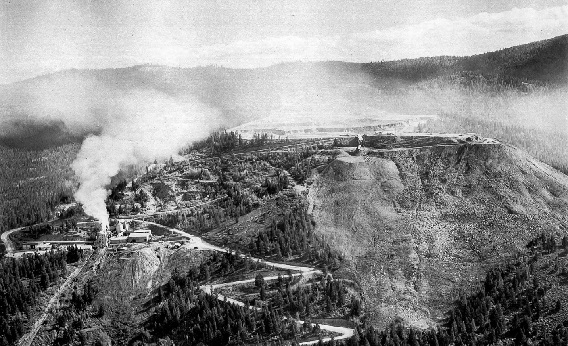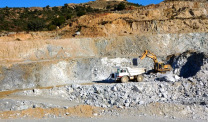Clinic That Helped Libby Mesothelioma Survivors Shuttered
Legislation & LitigationWritten by Travis Rodgers | Edited by Amy Edel

For 25 years, Libby, Montana’s Center for Asbestos Related Disease clinic, also known as CARD, has helped thousands of people with mesothelioma and other asbestos-related diseases. But the clinic has now closed its doors after the Lincoln County Sheriff’s Office delivered a writ of execution, ordering the clinic to pay $3.1 million to settle a judgment.
A writ of execution is a court order directing law enforcement to take someone’s property and sell it to pay off a legal debt. The judgment stemmed from BNSF Railway’s 2023 lawsuit against CARD. The Warren Buffet-owned railway claimed the clinic falsely diagnosed people to help them receive benefits and a jury agreed.
Many local leaders and residents say the clinic keeps the community healthy and they’re working to reopen it. The clinic’s executive director, Tracy McNew, said in a statement, “CARD remains committed to its patients and the Libby community and will fight to reopen as soon as possible.”
McNew and others working to reopen it say they fear closing the clinic will lead to fewer mesothelioma screenings and checks for other asbestos-related diseases. Early detection of diseases like mesothelioma helps people receive treatment sooner, gives them more options and can improve their outcomes.
Montana U.S. Attorneys Joins Fight to Reopen CARD
Assistant U.S. Attorneys Mark Smith and Lynsey Ross asked the Lincoln County District Court to cancel its order against the CARD Clinic. In their request, they said they had asked BNSF lawyer Cole Anderson to drop the case, but BNSF refused. Montana U.S. Attorney Kurt Alme’s office is helping defend the clinic, saying BNSF was wrong to try to collect money for the federal government.
Alme’s office also said that since CARD gets money from the federal government, the local court and BNSF can’t legally take its property. Alme is asking the court to give the property back to CARD.
Federal lawyers also say the company never got permission to act for the government when collecting the money. BNSF Railway sued using a law that let it file the case for the federal government, but only because federal officials chose not to take the case themselves. BNSF won and now can get part of the $6 million that was awarded to the federal government.
Local leaders are also speaking up. Montana State Senator Mike Cuffe publicly stated the closure left him feeling “stunned and very disappointed.” Health officials have said CARD is the only place in the region providing screenings for and information about asbestos-related diseases.
BNSF and CARD’s Legal Fights
BNSF Railway has also faced lawsuits. In 2024 a federal jury’s verdict for the plaintiff said BNSF contributed to the deaths of two people who had lived near its railyard. The estates of Thomas Wells and Joyce Walder filed a wrongful death lawsuit that aimed to hold BNSF accountable for spreading asbestos across Libby.
Originally known as Burlington Northern, the company actively transported asbestos-contaminated vermiculite from the mine in Libby for decades. Libby vermiculite was shipped across the country to be used as insulation in homes and businesses across the country.
BNSF filed its lawsuit against CARD in 2023 and a jury fined the clinic nearly $6 million in fines and penalties. Soon after the jury’s ruling, the clinic filed for bankruptcy in an attempt to remain open. CARD said it had a deal with the government that should have protected it from closure.
Leaders at CARD strongly deny any wrongdoing and that the clinic followed all proper medical rules. They say a misunderstanding led to the outcome of the lawsuit and that the shutdown is unfair.
CARD’s Role in Helping Mesothelioma Survivors
CARD was created after a long history of mesothelioma, lung cancer, asbestosis and other asbestos-related illnesses in Libby. Vermiculite mined in the town was contaminated with asbestos posing serious health risks to the public.
More than 3,000 people in Libby died as a result of asbestos exposure and many are currently coping with illness. CARD was created to help the community. It provided health screenings, checkups and treatment for those affected.
In 2024, the clinic received a $3 million federal grant to continue its work until at least 2029. Without the clinic and its screenings, many people might not get the help they need. Court documents show CARD has certified more than 3,400 people with asbestos-related diseases and has received a total of more than $20 million in federal funding.







